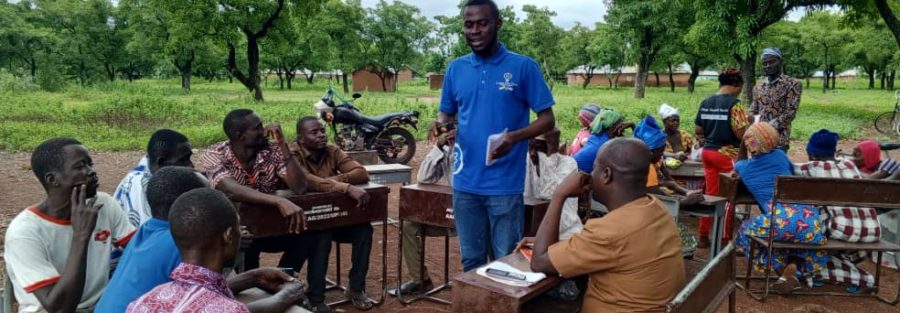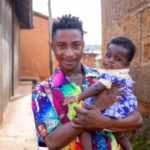In a significant move towards improving primary healthcare and promoting gender equity, ARHR through nine partners in Ghana’s Northern and Southern regions has recruited and trained 900 Gender Model Families (GMF) across ten project communities in two districts each. Each partner organization recruited 100 families, willing to participate in the GMF process, marking a key milestone in advancing gender equality and healthcare accessibility at the community level.
The GMF, a pioneering approach facilitated by Send Ghana and adopted under the ARHR initiative ‘’Putting Women and Girls at the Center of Primary Health Care” funded by Co-impact, is designed to address gender roles that hinder women and girls from fully participating in health decision-making. The GMF framework empowers families to share women’s domestic roles, which usually prevent women’s access to quality health care, to enhance their health outcomes.
Currently, participants are being trained on gender role analysis and Family Equity Promotion Action Plan development. These sessions provide families with the skills and knowledge to recognize gender disparities in their households and communities and to actively work towards promoting equity. By focusing on gender roles, the training equips families to take a more balanced approach, redistributing household tasks traditionally assigned to women and ensuring that their reproductive and caregiving contributions are acknowledged and valued.
The project, leveraging the GMF approach, focuses on improving primary health care (PHC) access for women and children in these communities. By empowering women through increased agency, representation, and contribution to health decision-making processes, the initiative seeks to enhance both family and community-level health outcomes. The GMF framework encourages men to take a more active role in family care that alleviates the burden on women and fosters a more supportive environment for everyone.
The recruitment and training of these 900 GMFs mark a major stride in ARHR’s commitment to fostering gender equality and improving health access at the community level. The training of these families is expected to have a long-lasting impact on women’s participation in healthcare and the overall well-being of communities. This initiative is part of ARHR’s broader strategy to strengthen health systems and gender equality, ensuring that women and girls are at the heart of primary health care reforms in Ghana.
By recognizing and redistributing women’s domestic roles, this project aims to empower women to fully contribute to and benefit from the health systems in their communities, bringing lasting change to families and communities.



